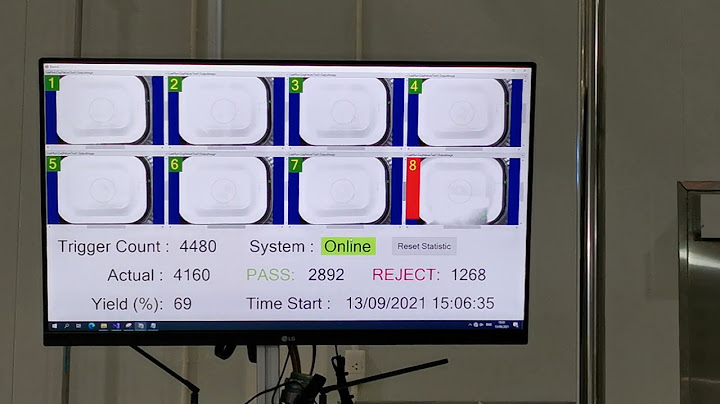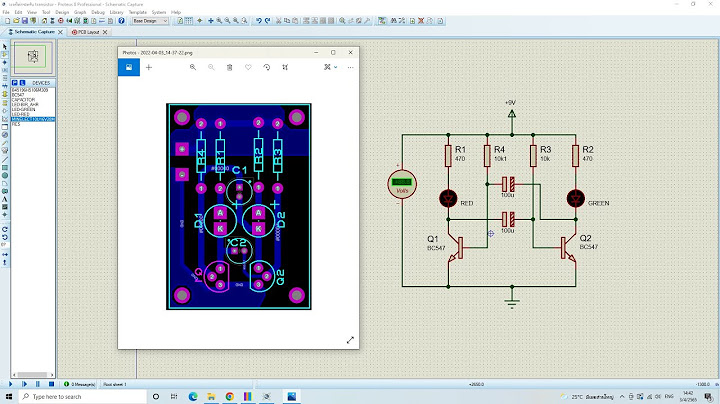คำว่า “หลักสูตร” แปลมาจากคำในภาษาอังกฤษว่า “curriculum” ซึ่งมีรากศัพท์มาจากภาษาละตินว่า “currere” หมายถึง “running course” หรือเส้นทางที่ใช้วิ่งแข่ง ต่อได้นำศัพท์นี้มาใช้ในทางการศึกษาว่า “running sequence or learning experience” (Armstrong,1986:2) การที่เปรียบเทียบหลักสูตรกับสนาม หรือเส้นทางที่ใช้วิ่งแข่งอาจเนื่องมาจากการที่ผู้เรียนจะสำเร็จการศึกษาในระดับใดหรือหลักสูตรใดก็ตาม ผู้เรียนจะต้องฟันฝ่าความยากของวิชาหรือประสบการณ์การเรียนรู้ตามลำดับขั้นที่กำหนดไว้ในหลักสูตร เช่นเดียวกับนักวิ่งที่ต้องวิ่งแข่งและฟันฝ่าอุปสรรคไปสู่ชัยชนะและความสำเร็จให้ได้ในสมัยก่อนในประเทศไทยใช้คำว่า “หลักสูตร” กับคำศัพท์ภาษาอังกฤษว่า “syllabus” ปรากฏในหลักสูตรมัธยมศึกษาตอนต้นและตอนปลาย พุทธศักราช 2503 ฉบับภาษาอังกฤษ เรียกว่า “Syllabus for Lower secondary Educationm B.E. 2503” และ “Syllabus for Upper secondary Educationm B.E. 2503” แต่ต่อมาได้เปลี่ยนมาใช้คำว่า “curriculum” แทน เช่น หลักสูตรมัธยมศึกษาตอนต้น พุทธศักราช 2521 (ฉบับปรุง2533) ฉบับภาษาอังกฤษเรียกว่า “Lower Secondary School Curriculum B.E.2521 (Revised Education B.E.2533)” เพื่อต้องการแยกความหมายให้ชัดเจน เพราะคำว่า syllabus และ curriculum มีความหมายที่แตกต่างกันดังที่ English Language Dictionary ให้ความหมายของคำทั้งสองดังนี้ “curriculum” หมายถึง 1. รายวิชาต่างๆ ทั้งหมดที่จัดสอนในโรงเรียน วิทยาลัย หรือมหาวิทยาลัย (all the different courses of study that are taught in a school, college, or university e.g. the school curriculum) และ 2. รายวิชาหนึ่งๆ ที่จัดสอนในโรงเรียน วิทยาลัยหรือมหาวิทยาลัย (one particular course of study is taught in a school, college, or university e.g. the English curriculum ) “syllabus” หมายถึง หัวข้อเรื่องที่จะศึกษาในรายวิชาหนึ่งๆ (the subjects to be studied in a particular course) จากความหมายข้างต้นนี้จะเห็นว่า คำว่า “curriculum” ซึ่งใช้อยู่ในปัจจุบันจะเหมาะกว่าคำว่า “syllabus” ส่วนคำว่า “syllabus” จะใช้เมื่อหมายถึงประมวลการสอนในแต่ละรายวิชาซึ่งประกอบด้วยรายละเอียดเกี่ยวกับจุดมุ่งหมาย เนื้อหาสาระ กิจกรรม การเรียนการสอน การวัดและประเมินผล “หลักสูตร” เป็นคำศัพท์ทางการศึกษาคำหนึ่งที่คนส่วนใหญ่คุ้นเคย และมีผู้ให้ความหมายไว้มากมายและแตกต่างกันไปบางความหมายมีขอบเขตกว้างบางความหมายมีขอบเขตแคบทั้งนี้ขึ้นอยู่กับความคิดเห็นและประสบการณ์ที่แตกต่างกันของบุคคลนั้นๆ ที่มีต่อหลักสูตร เช่น กู๊ด (Good,1973:157) ได้ให้ความหมายของคำศัพท์ไว้ในพจนานุกรมทางการศึกษา (Dictionary of Education) ว่า หลักสูตรคือ กลุ่มรายวิชาที่จัดไว้อย่างมีระบบหรือลำดับวิชาที่บังคับสำหรับการจบการศึกษาหรือเพื่อรับประกาศนียบัตรใบสาขาวิชาหลักต่างๆ เช่น หลักสูตรสังคมศึกษา หลักสูตรพลศึกษา บ๊อบบิท (Bobbit,1918:42)ได้ให้ความหมายไว้ว่า หลักสูตร คือรายการของสิ่งต่างๆ ที่เด็กและเยาวชน ต้องทำและมีประสบการณ์ ด้วยวิธีการพัฒนาความสามารถในการทำสิ่งต่างๆ ดังกล่าวให้ดี เพื่อให้สามารถดำรงชีวิตในวัยผู้ใหญ่ได้ นักลีย์และอีแวนส์ (Neagley and Evans,1967:2) ได้ให้ความหมายของหลักสูตรว่า คือ ประสบการณ์ที่โรงเรียนจัดเพื่อช่วยให้นักเรียนได้บรรลุเป้าหมายที่กำหนดไว้ตามความสามารถของนักเรียน โอลิวา (Oliva,1982:10) กล่าวว่า หลักสูตรคือ แผนหรือโปรแกรมสำหรับประสบการณ์ทั้งหลายที่ผู้เรียนจะต้องประสบปัญหาภายใต้การอำนวยการของโรงเรียน วีลเลอร์ (Wheenler,1974:11) ได้ให้ความหมายของหลักสูตรว่า มวลประสบการณ์การเรียนรู้ซึ่งโรงเรียนหรือสถานการศึกษาจัดให้แก่ผู้เรียน โครว์ (Crow,1980:250) ได้ให้ความหมายของหลักสูตรคล้ายกับของวิลเลอร์ เขากล่าวว่า หลักสูตรเป็นประสบการณ์ที่นักเรียนได้รับทั้งภายในและภายนอกโรงเรียน เพื่อนักเรียนมีการพัฒนาด้านร่างกาย สังคม ปัญญา และจิตใจ แคสเวนและแคมป์เบลล์ (Caswell &Campbell,1935:69) ได้เสนอความคิดเกี่ยวกับหลักสูตรในหนังสือ Curriculum Development ซึ่งตีพิมพ์ในปี 1935 โดยให้ความหมายของหลักสูตรในโรงเรียนว่า “หลักสูตรประกอบด้วยประสบการณ์ทุกอย่างที่จัดให้แก่เด็กโดยอยู่ในความดูแลการสอนของครู” แคสเวนและแคมป์เบลล์ไม่ได้มองหลักสูตรว่าเป็นกลุ่มของรายวิชาแต่หมายถึง “ประสบการณ์ทุกชนิดที่เด็กมีภายใต้การแนะนำของครู” เซย์เลอร์และอเล็กซานเดอร์ (Saylor&Alexander,1974:6)ได้กล่าวถึงความหมายของหลักสูตรว่า “เป็นแผนสำหรับจัดโอกาสการเรียนรู้ให้แก่บุคคลกลุ่มใดกลุ่มหนึ่ง เพื่อบรรลุเป้าหมายหรือจุดมุ่งหมายที่วางไว้โรงเรียนเป็นผู้รับผิดชอบ” ซึ่งสอดคล้องกับแนวความคิดของทาบา (Taba,1962:10) ที่กล่าวไว้ว่า “หลักสูตรคือ แผนการเรียนรู้ที่ประกอบด้วยจุดประสงค์และจุดมุ่งหมายเฉพาะการเลือกและการจัดเนื้อหา วิธีการจัดการเรียนการสอน และการประเมินผล” เชฟเวอร์และเบอร์เลค (Shaver and berlak,1968:9) กล่าวว่า หลักสูตร คือ กิจกรรมที่ครูจัดให้นักเรียนได้เล่นเพื่อให้นักเรียนได้เกิดการเรียนรู้ ทรัมพ์และมิลเลอร์ (Trump and Miller,1973:11-12) กล่าวว่า หลักสูตรคือกิจกรรมการเรียนการสอนชนิดต่างๆ ที่เตรียมการไว้และจัดให้แก่เด็กนักเรียนหรือระบบโรงเรียน นักการศึกษาของไทยหลายท่านได้แสดงความคิดเห็น และความหมายของคำว่าหลักสูตรไว้หลายประการเช่น สุมิตร คุณานุกร (2520,2-3) ได้ให้ความหมายของหลักสูตรไว้ในสองระดับ คือหลักสูตรในระดับชาติและหลักสูตรในระดับโรงเรียน หลักสูตรระดับชาติหมายถึง “โครงการให้การศึกษาเพื่อพัฒนาผู้เรียนให้มีความรู้ ความสามารถ และคุณลักษณะ สอดคล้องกับความมุ่งหมายทางการศึกษาที่กำหนดไว้” ส่วนหลักสูตรในระดับโรงเรียนหมายถึง “โครงการที่ประมวลความรู้และประสบการณ์ทั้งหลายที่โรงเรียนจัดให้กับนักเรียน ไม่ว่าจะเป็นภายในหรือภายนอกโรงเรียนก็ตาม เพื่อให้ผู้เรียนพัฒนาไปตามความมุ่งหมายที่กำหนดไว้” ธำรง บัวศรี (2532:6) ได้ให้ความหมายของหลักสูตรว่า คือ แผนซึ่งได้ออกแบบจัดทำขึ้นเพื่อได้แสดงถึงจุดมุ่งหมาย การจัดเนื้อหาสาระ กิจกรรม และประมวลประสบการณ์ในแต่ละโปรแกรมการศึกษา เพื่อให้ผู้เรียนมีพัฒนาการในด้านต่างๆตามจุดหมายที่ได้กำหนดไว้ เอกวิทย์ ณ ถลาง (2521:108) เขียนในบทความเรื่อง “ข้อคิดเรื่องหลักสูตร” ได้ให้ความหมายว่า หลักสูตร หมายถึง มวลประสบการณ์ทั้งหลายที่จัดให้เด็กได้เรียน เนื้อหาวิชาและทัศนคติ แบบพฤติกรรม กิจวัตร สิ่งแวดล้อม ฯลฯ เมื่อประมวลเข้ากันแล้วก็เป็นประสบการณ์ที่ผ่านเข้าไปในการรับรู้ของเด็กถือว่าเป็นหลักสูตรทั้งสิ้น จากความหมายของหลักสูตรในลักษณะต่างๆ ที่ได้ยกตัวอย่างของระดับความคิดของ นักการศึกษาทั้งชาวต่างประเทศและชาวไทย สามารถนำมาสรุปแนวความคิดเกี่ยวกับความหมายของหลักสูตรเพื่อความเข้าใจที่ชัดเจนยิ่งขึ้นได้ดังนี้ Course definition The term "curriculum" is derived from the English word "curriculum", which is derived from the Latin word "currere", meaning "running course" or runway. The term "running sequence or learning experience" is used in this study (Armstrong, 1986: 2). Alternatively, the route that runs the race may be due to the degree to which the learner completes or the course. The student must overcome the difficulty of the course or the learning experience in the sequence defined in the course. The term "syllabus" in the syllabus is used in "junior high school" and "junior high school" programs. The English version is called "Syllabus for Lower Secondary Education BE 2503" and "Syllabus for Upper Secondary Education BE 2503", but later changed to "curriculum". BE2521 (Revised Education BE2533) "for the purpose of clarifying the meaning of the syllabus and the curriculum has the same meaning as English. Language Dictionary gives meaning to both words. "Curriculum" refers to the following: 1. All courses taught at a school, college, or university. Taught in school A college or university (the curriculum is taught in a school, college, or university) "Syllabus" refers to the subject that will be studied in a particular course. In this sense, the term "curriculum" used today is more appropriate than the term " syllabus ". The term" syllabus "is used when referring to the syllabus in each course, which contains details about the aims, content, activities, teaching and learning. Measurement and Evaluation The "curriculum" is one of the most widely used terms in education. There are a number of meanings, some of them broad, some of them narrow, depending on their opinions and experiences. For example: Good (1973: 157) provides the meaning of vocabulary in the Dictionary of Education. The curriculum is a structured course or mandatory course for graduation or for receiving. Certificate in major disciplines such as social studies. Physical Education Courses Bobbit (1918: 42) has meant that a course is a list of things. At the children and youth Have to do and have experience How to develop the ability to do things. So good To be able to live in adulthood. Neagley and Evans (1967: 2) have defined the curriculum as a school-organized experience to help students achieve their goals based on their ability. Oliva (1982: 10) states that the curriculum is a plan or program for all the experiences that the student must face under the curriculum. Wheenler, 1974: 11). The learning experience that the school or educational institution provides to the learner. Crow (Crow, 1980: 250) gave the meaning of a course similar to that of Willer. He said the curriculum is an experience that students receive both inside and outside the school. To develop students' physical, social, intellectual and spiritual. Caswell & Campbell (1935: 69) proposed a curriculum-related idea in the Curriculum Development, published in 1935, "The curriculum includes all the experiences that are provided to children in the care of teachers." Caswell and Campbell do not look at the curriculum as a group of courses, but refer to them. "All kinds of experiences that children have under the guidance of teachers" Seymour and Alexander (Saylor & Alexander, 1974: 6). "Is a plan for organizing learning opportunities for a particular group of people. To achieve the goal or purpose that the school is responsible for, "which corresponds to the concept of Taba. (Taba, 1962: 10) states, "A curriculum is a learning plan that contains the sole purpose and purpose of selecting and organizing content. Teaching Method And evaluation " Shaver and Berlak (1968: 9) say that the curriculum is an activity that teachers provide for students to play. Trump and Miller (1973: 11-12) say that the curriculum is a kind of learning activity. Prepared and arranged for school children or school system. Many Thai educators have commented. And the meaning of the word in many ways. Sumitra Kunanukorn (2520,2-3) gave the meaning of the course on two levels. Is a national curriculum and a school-based curriculum. National curriculum means "The project provides education to develop learners to have the knowledge, ability and characteristics in accordance with the dog's orientation. |

การโฆษณา
ข่าวล่าสุด
การโฆษณา
ผู้มีอำนาจ
การโฆษณา
ถูกกฎหมาย
ช่วย

ลิขสิทธิ์ © 2024 th.ketajaman Inc.

























